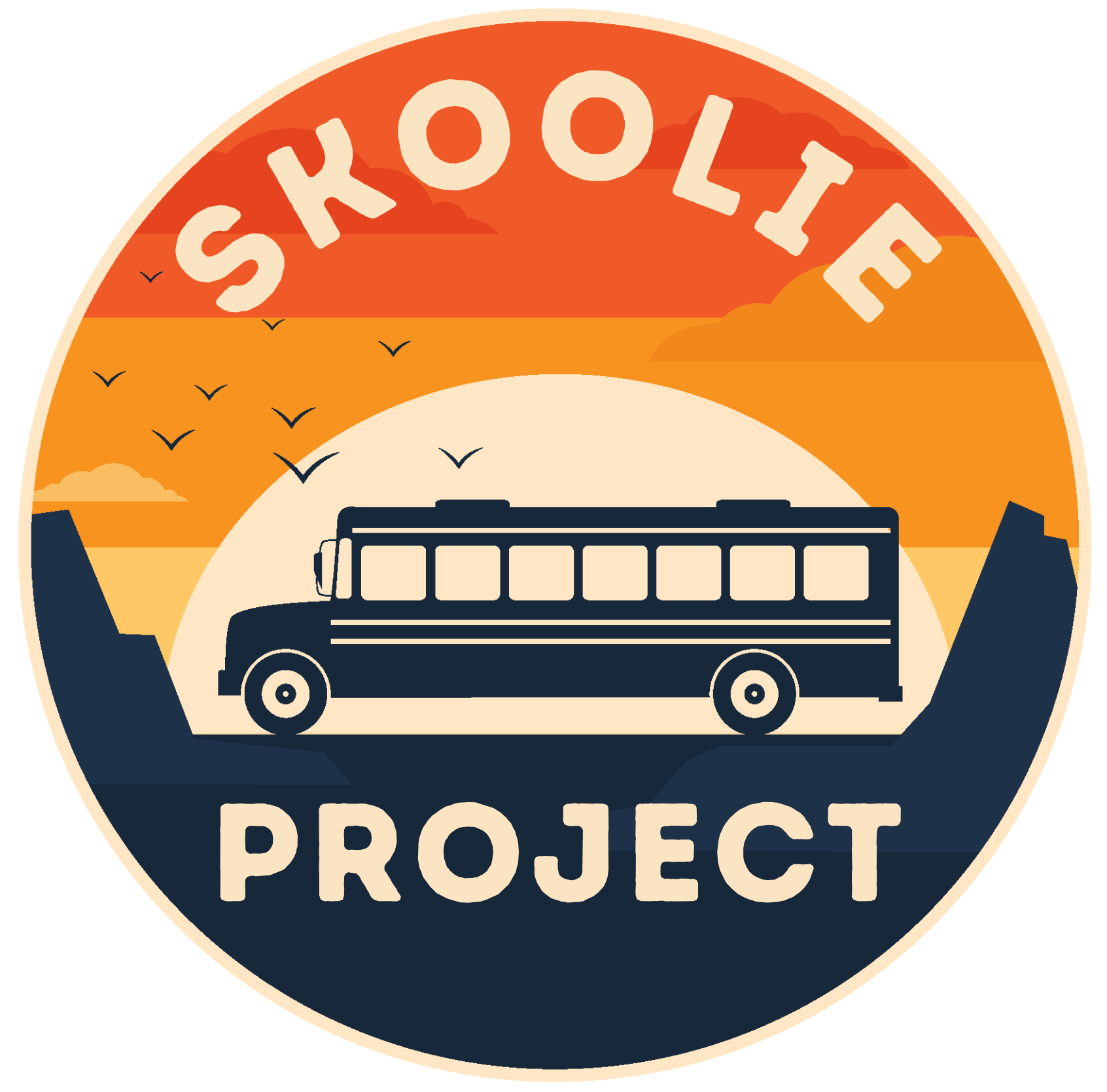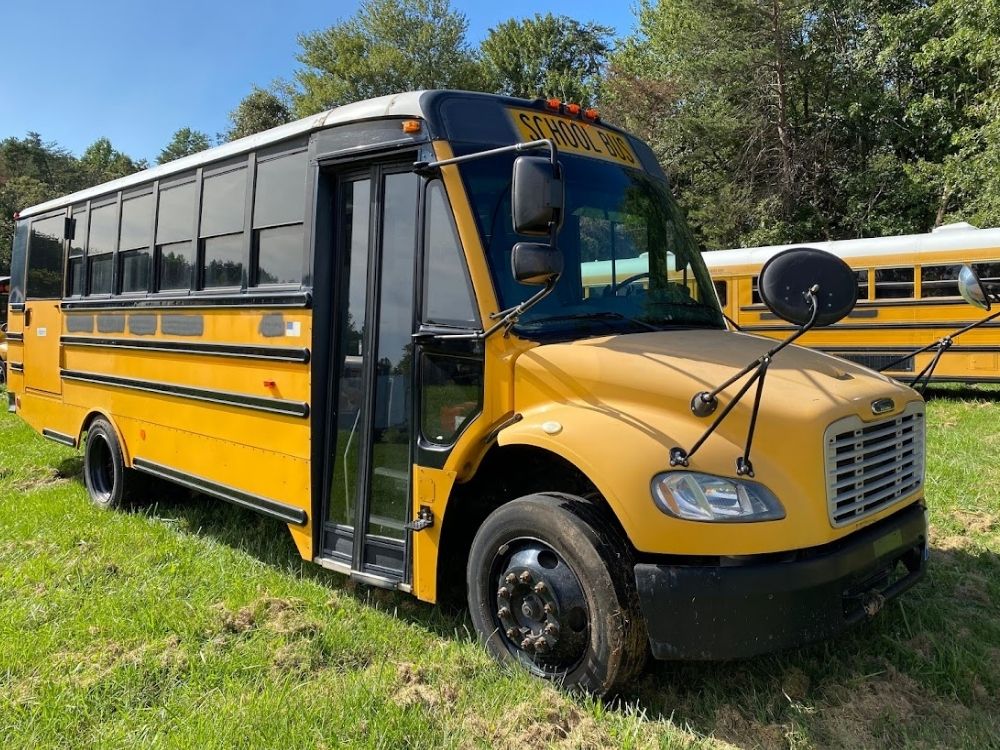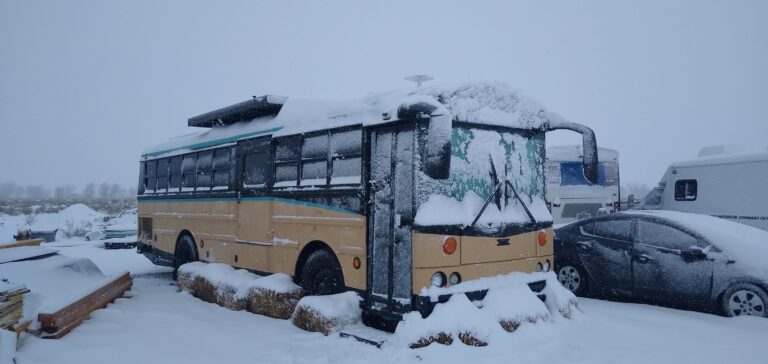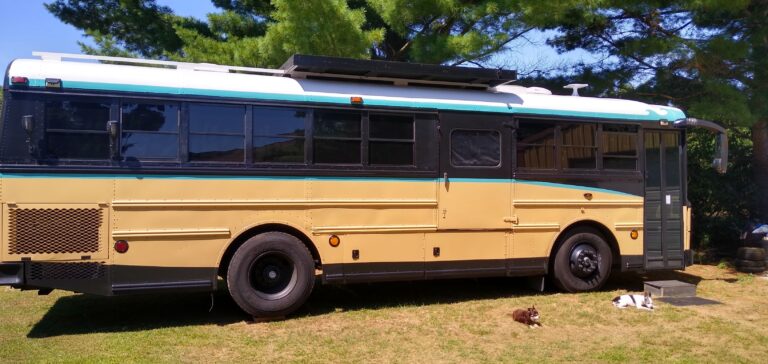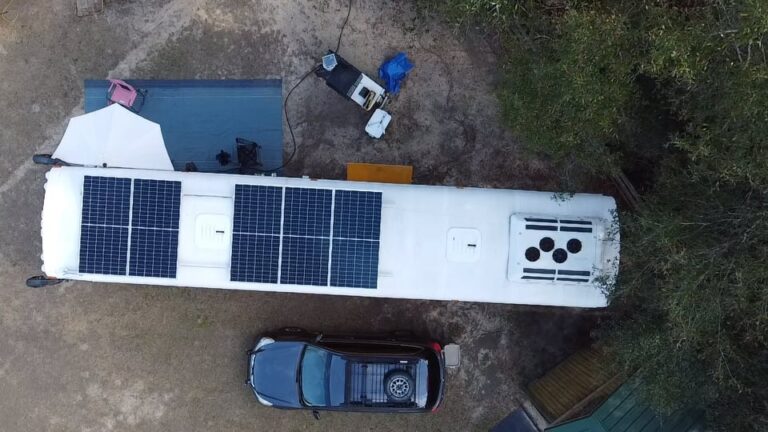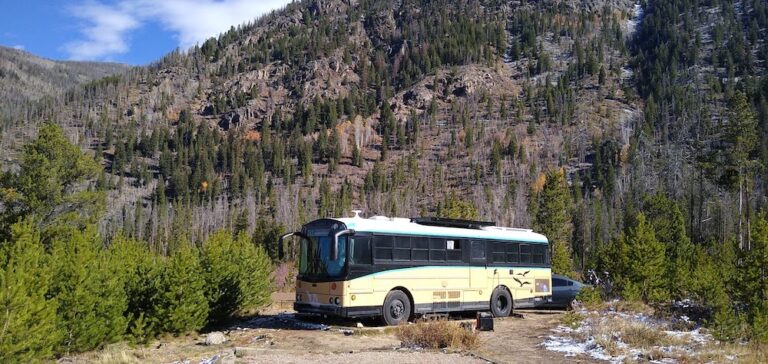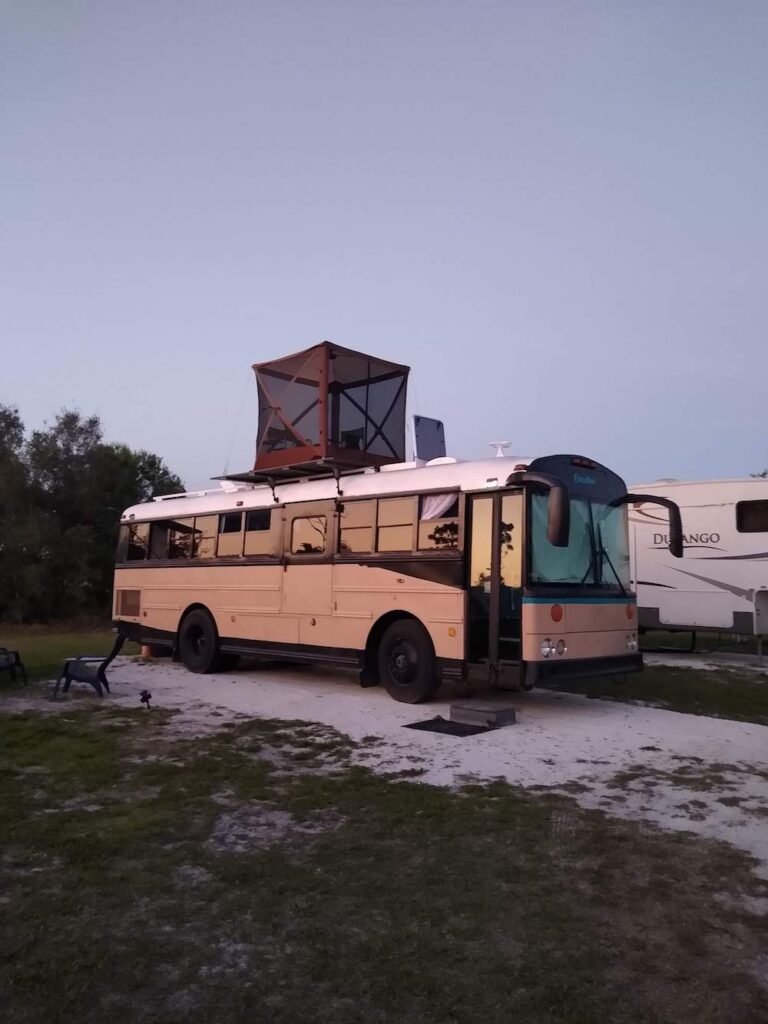11 Questions To Ask Before You Buy A School Bus
We have all been there before. You know you want a school bus to convert into a skoolie, but you really don’t know where to start. Here, we talk about 11 questions before you buy a bus.
Having the basic information is most of the battle in order to make an informed decision. Especially if that decision is going to be a significant financial investment.
This is not an exhaustive list of questions to ask before you buy a bus, but they are questions that will lead you in the right direction.
Let's get right to it.
1. What To Know Before You BuyA School Bus
The thing to know before buying a school bus is that it is going to be a struggle at times. It is going to be such a struggle sometimes that you are going to question yourself if converting a school bus is really worth it.
We have both been there on several occasions. Individually and collaboratively, we have questioned whether what we are doing is worth it in the long term.
We can answer with an immediate and resounding, Yes, it is worth it.
There are many tangible things you should know before buying a bus as well. Such as:
- Where are you going to demo the bus, and then, where and how are you going to dispose of all of the seats, floor, and sheet metal you tear out.
- Where are you going to build out your bus? Does your HOA or city allow you to park and work on a bus in your driveway or property?
- How are you going to finance the build? Depending on how elaborate your build plans are and how quickly you want to accomplish the build, spending upwards of $20,000 is normal.
- How are you going to complete the build? Do you have the skills to complete a DIY Skoolie Project? Do you have the tools needed to complete the build?
- Once you complete the conversion, then what? Are you going to full-time or part-time travel? How are you going to make an income if you do travel full time?
These are all questions you should already have considered, pondered, and answered before you even make an offer on your first school bus.
2. What Should I Look For Before You Buy A School Bus?
While we were searching for our first, second, and third DIY conversion, we first determined what type of vehicle we wanted to build on. We knew the make, size, engine, condition, and ceiling height.
When you do locate a bus you would consider purchasing, there is a list of items that should be looked at closely prior to exchanging your cash for a title.
Here are those things you should look for when buying a school bus.
Engine and Transmission Condition
Not only should you start the engine of the bus you are considering buying, but you should also drive it for at least 30 minutes to an hour.
The engine should start right up with no hesitation or stalling.
When driving the school bus, pay close attention to how smoothly the transmission changes gear, the RPMs of the engine and any irregular sounds with the engine.
Check The Fluids
Check the oil in your engine. Pay close attention to both the level of oil in the engine, the condition of the oil as well as the color and smell of the oil.
Be sure the oil doesn’t have any particles or remnants of metal flakes. The oil should be very dark or black and have the smell of diesel to it.
Check the Tires
Tires should not exhibit any cracks due to age and weathering. Also, check the DOT date stamp on the tire. It will be four numbers with an oval circle around it.
The first two numbers represent the week the tires were produced and the last two numbers represent the year the tire was produced. So, a tire with a date stamp of 4518 would mean the tire was made the 45th week of 2018.
You should never run a tire on a skoolie that is more than six years old. If they are six years or older, then it would be wise to replace them regardless of their visible condition.
Check the Underside and Exterior for Rust
Give your potential new bus a very sharp eye both on the outside and underneath it for rust.
Surface rust underneath your bus is normal, but when the rust becomes pitted and especially if the metal is starting to get flakey, then it would be a hard NO for us.
3. What Should I Look For on Tires Before I Buy A School Bus?
Bus tires are as important to a school bus or skoolie as a sound working engine and transmission.
Tires are going to eventually wear out. The more you drive your bus, the closer to replacing your tires are going to become.
As we stated above, it is not just about the tread depth of your bus you need to be concerned with.
DOT Date Stamp
The age of the tires is just as vulnerable to a blowout as low tread and cracked walls.
Remember, once your bus tires have exceeded six years on the road, whether it is a spare or not, they should be replaced with new tires.
On that note, when purchasing new tires, pay attention to the DOT date stamp to be sure you are buying new tires and not tires that may look brand new, but are actually a couple of fo years old.
Low Tread
Once your skoolie tires have reached a maximum of 1/8th of an inch of tread, it is time to replace them with new tires.
Low tread on your skoolie tires will reduce the traction, steerability, and safety of road debris by a great amount.
When replacing your tires, it is recommended to replace both the steer and drive tires with “virgin” tires. Virgin tires are brand new and have not been re-tread.
By the way, it is illegal for steer (front) tires to be re-tread. They should always be virgin tires.
Cracks and Dry Rot
Cracks and dry rot on the sidewall of your tires are a recipe for disaster. The faster you drive, the more your turn, and the heavier your bus is, the more likely you are to have a blowout.
Having a blowout, especially with one of your steer tires, is one of the most dangerous situations you can put yourself into.
If you are seeing any cracks or signs of dry rot on your tires, immediately replace them.
4. Should I Drive The Bus Before Buying It?
You should most definitely drive your bus before you buy it. You need to “feel” your bus and determine if you are comfortable driving it.
We have friends who purchased a bus and then realized they were not comfortable at all driving it long distances. Finding this out early can save you so much time and money.
You need to know if the bus runs well and changes gears smoothly before purchasing an engine and transmission in need of immediate repairs.
5. Are School Buses Safer Than RVs?
The is no trepidation at all when we say that school buses are much safer than RVs. Not only are they made and constructed so much better, but they are much safer from wild animals as well as human deviance.
Breaking into a school bus is much more difficult than an RV when the skoolie owner has taken the necessary precautions to secure and make the bus safe.
We found this article on the very subject. Give it a read and let us know what you think.
When it comes to the unfortunate circumstances of an accident, especially on a highway, RV accidents typically require a front loader and dump truck more than they require a wrecker.
6. Can You Drive A School Bus With A Normal License?
This is a situation where it is best to revert to your state’s DMV.
Generally speaking, once your school bus has been registered as a Motorhome, then you are allowed to drive it with a regular driver's license, provided your state's DMV does not require an endorsement for RVs.
7. What Is The Best School Bus Engine?
Chevrolet or Ford? Nissan or Toyota? Mercedes Benz or Volvo? Cummings, Caterpillar, or Mercedes? This is an age-old question that can be debated and argued until the cows come home.
There are some bus engines that some people would bet their lives on.
Regardless of which engine your skoolie is equipped with, it will serve you well as long as you serve it well.
The Cummings 5.9l, 6.7L, or 8.3L engines are all great engines. They have been around for a very long time.
Similarly, the Catapillar C7, Mercedes 900 series, or the DT 360 or DT 466 are all great engines for a skoolie.
The best engine is the one that is properly maintained and cared for. All of these engines will take you for hundreds of thousands of miles.
8. Can I Buy A School Bus For Personal Use
You most certainly can buy a school bus for personal use. There may be some stipulations and requirements after you purchase the bus, you there is no law to prohibit you from purchasing a school bus.
Depending on the state you have your bus registered in, you may be required to:
- Repaint your school bus. Some states prohibit privately owned school buses from keeping the school bus yellow paint.
- Remove the Emergency Stop Lights. You are almost always going to be required to remove or cover up the amber and red stoplights on the upper front and upper rear caps of your bus.
- Remove the stop signs on the left side of the bus.
- Remove all indications of the “SCHOOL BUS” decals.
Basically, no state wants anyone to be confused with your privately owned bus and a commissioned or working school bus.
This is a child and sex trafficking precaution.
9. How To Buy A School Bus From A School District
If the school district allows private sales to private individuals, the best approach would be to contact the school district directly you are interested in purchasing from.
Most school districts are required to go through an auction or have a contract with a dealer to purchase retired school buses.
If you are able to purchase directly from the school district, be sure to talk to some of the mechanics in the “yard” as they are the ones who have been maintaining your bus.
10. How Much Rust Is Too Much Rust?
The old question of how much is too much? The answer to that question depends on how comfortable you are with rust mitigation and what your personal comfort level is.
For us, too much rust is where there are holes through the metal or there is significant pitting that has changed the surface of the metal.
It is not realistic to expect no rust on a school bus ready for retirement. Most buses are in use for a specific amount of mileage on the engine and years in service.
Typically speaking, once a school bus has been in commission for 15 years, it is sold off and restocked with a newer model. Expecting a 15-year-old bus to not have any rust at all is not a realistic expectation.
The question then remains is how comfortable you are with the amount of rust on the bus you are considering purchasing.
11. What Is The Best Bus For A Conversion?
The best bus for a skoolie project or conversion is any of them! We love the variety of builds on the different sizes, lengths, and styles of school buses.
Some may argue that a Bluebird is more “square” on the inside than a Thomas C2. Does it really matter though if you love the Thomas C2?
We feel the argument for the best bus to complete conversion is a pointless conversation. Sure, some may be easier in some parts of the build than others, but when it boils down to it, all conversions have their challenges.
We wrote a post on this very subject. School Bus Sizes For A Skoolie Conversion. There may be more information here that can answer some of your questions.
Wrap Up To 11 Questions To Ask Before You Buy A School Bus
Take a look at the 11 main questions above. If you can answer all of the questions with a positive and satisfying response in regards to a bus you have already purchased or considering purchasing, then you have a good bus.
Think about what you want to know about a car before you purchase it. Think about what you want to know about a house before you buy it.
Now, merge those two purchases together and you should have a pretty good idea of what to ask before you buy a school bus.
We would love to hear how your school bus purchase went. Are there any questions others should know before they buy a school bus that we have not discussed here?
Leave us a comment below, we’d love to connect with you!
